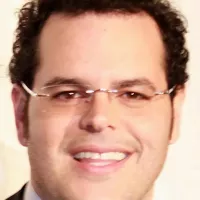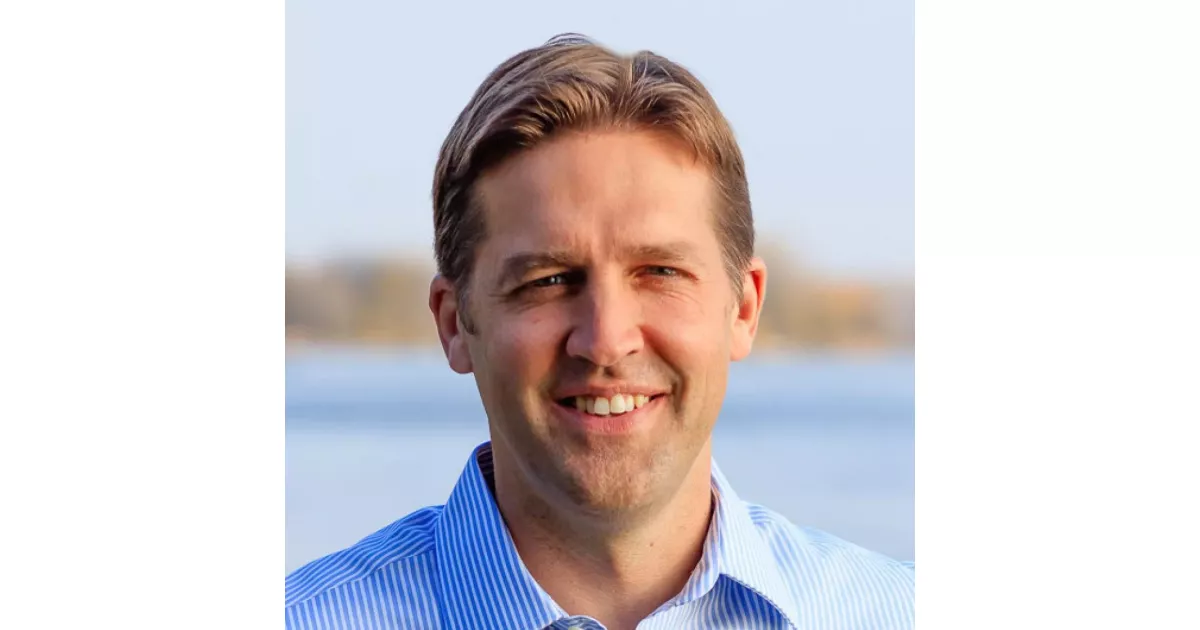1990: Graduated High School
In 1990, Ben Sasse graduated from Fremont Senior High School as valedictorian, marking the completion of his secondary education.
1992: Studied at University of Oxford
In the fall of 1992, Ben Sasse studied at the University of Oxford during a junior year abroad program, expanding his academic horizons.
September 1994: Joined Boston Consulting Group
In September 1994, Ben Sasse started working as an associate consultant at the management consulting firm Boston Consulting Group, beginning his career in consulting.
1994: Graduated from Harvard College
In 1994, Ben Sasse graduated from Harvard College with a bachelor's degree in government, a significant milestone in his academic career.
November 1995: Consultant for Christians United For Reformation
In November 1995, Ben Sasse served as consultant/executive director for Christians United For Reformation (CURE).
1998: Earned Master of Arts
In 1998, Ben Sasse earned a Master of Arts in liberal studies from St. John's College, adding to his academic credentials.
2000: Selected as a Harvey Fellow
In 2000, The Mustard Seed Foundation selected Ben Sasse as a Harvey Fellow, providing support for his doctoral studies.
2004: Earned PhD from Yale University
In 2004, Ben Sasse earned a PhD in history from Yale University, marking the culmination of his doctoral studies.
July 2005: Chief of Staff to Jeff Fortenberry
In July 2005, Ben Sasse's tenure as chief of staff to Representative Jeff Fortenberry came to an end.
September 2005: Consultant for Department of Homeland Security
In September 2005, Ben Sasse was advising the United States Department of Homeland Security on national security issues.
December 2006: Counselor to the Secretary at HHS
In December 2006, Ben Sasse began serving as counselor to the secretary at the United States Department of Health and Human Services (HHS).
December 2006: Resumed Professorship at University of Texas
In December 2006, Ben Sasse concluded his full-time professorship at the University of Texas, marking the end of this phase of his academic career.
July 2007: Nominated as Assistant Secretary
In July 2007, President George W. Bush nominated Ben Sasse to the post of assistant secretary for planning and evaluation in the U.S. Department of Health and Human Services.
December 2007: End of time as Counselor to the Secretary at HHS
In December 2007, Ben Sasse ended his time as counselor to the secretary at the United States Department of Health and Human Services (HHS).
December 2007: Confirmed as Assistant Secretary
In December 2007, the Senate confirmed Ben Sasse as assistant secretary for planning and evaluation in the U.S. Department of Health and Human Services.
2007: Set Fundraising Record
In 2007, Mike Johanns previously set a fundraising record of $526,000 from individual donors.
January 2009: End of Bush Administration
In January 2009, Ben Sasse's service as assistant secretary for planning and evaluation in the U.S. Department of Health and Human Services concluded with the end of the Bush administration.
October 2009: Joined LBJ School of Public Affairs
In October 2009, Ben Sasse officially joined the Lyndon B. Johnson School of Public Affairs Center for Politics and Governance as a fellow, before being appointed president of Midland University.
October 2009: Announced as President of Midland Lutheran College
In October 2009, Ben Sasse was announced as the 15th president of Midland Lutheran College (now Midland University), marking a new chapter in his career.
2009: Bloomberg Businessweek column titled "Health-Care Reform: The Rush to Pass a Bad Bill"
In 2009, there was an emerging consensus that this [an individual mandate] might be a good idea".
December 10, 2010: Installed as President of Midland
On December 10, 2010, Ben Sasse was installed as president of Midland University.
2010: Republicans would probably lack the votes to repeal the ACA
In 2010, Ben Sasse said Republicans would probably lack the votes to repeal the ACA, stating that "a middle-class entitlement has never been repealed", and opining that Republicans had failed to offer a viable alternative, preferring to stage "symbolic repeal votes".
2010: Named President of Midland University
In 2010, Ben Sasse was named the 15th president of Midland University in Fremont, Nebraska, marking a significant step in his career in academic administration.
2010: Took Leadership of Midland Lutheran College
In spring 2010, Ben Sasse took over leadership of Midland Lutheran College, starting his tenure as president.
October 2013: Announced Candidacy
In October 2013, Ben Sasse announced his candidacy for the Senate seat, marking his entry into the political arena.
October 2013: Contract Amended
In October 2013, Ben Sasse's employment contract was amended to reduce his pay.
May 13, 2014: Won Republican Nomination
On May 13, 2014, Ben Sasse secured the Republican nomination, positioning him for the general election.
November 4, 2014: Won General Election
On November 4, 2014, Ben Sasse won the general election, becoming the U.S. Senator for Nebraska.
2014: Elected to the U.S. Senate
In 2014, Ben Sasse was elected to a vacant seat in the U.S. Senate, marking his entry into national politics.
2014: AQ rating from NRA
In 2014, Sasse's Senate campaign received an "AQ" rating from the NRA Political Victory Fund.
December 31, 2014: Stepped Down as President of Midland
On December 31, 2014, Ben Sasse stepped down as president of Midland University, concluding his tenure.
January 6, 2015: Sworn into the U.S. Senate
On January 6, 2015, Ben Sasse was sworn in as a member of the U.S. Senate, officially beginning his term.
2015: Became Senator
In 2015, Ben Sasse began his service as a United States Senator representing Nebraska.
2016: Announcement against supporting Trump
In 2016, Sasse announced he would not support Trump if he became the Republican nominee, questioning Trump's commitment to the Constitution and suggesting he might leave the Republican Party.
2016: Voted against Comprehensive Addiction and Recovery Act
In 2016, Sasse was the only senator to vote against the Comprehensive Addiction and Recovery Act, questioning the federal role in drug treatment.
September 2017: Considering leaving the GOP
In September 2017, Sasse expressed he thought about leaving the GOP "every morning" and called Trump a "megalomaniac strongman", criticizing his tariffs and trade war with China.
2017: Advocated for ACA repeal
In 2017, Sasse continued to support the repeal of the ACA. He proposed an immediate repeal with a one-year delay in implementation and called on the Senate to give up its August recess to work on a replacement measure.
2017: Author of "The Vanishing American Adult"
In 2017, Sasse is the author of The Vanishing American Adult.
March 2018: Criticism of Trump's congratulations to Putin
In March 2018, Sasse criticized Trump for congratulating Vladimir Putin on his election victory, stating that it weakened the U.S. and strengthened a tyrant.
July 2018: Speculation of a presidential bid
In July 2018, it was reported that Sasse launched a new political non-profit group, fueling speculation about a potential presidential bid, despite ongoing communications with Trump.
December 18, 2018: Voted against the FIRST STEP Act
On December 18, 2018, Sasse voted against the bipartisan criminal justice reform legislation, the FIRST STEP Act, despite it passing with near-unanimous consent.
2018: Author of "Them: Why We Hate Each Other – and How to Heal"
In 2018, Sasse is the author of Them: Why We Hate Each Other – and How to Heal.
2018: Criticism from Nebraska Republicans
In 2018, Sasse's suggestion of a third-party candidate drew criticism from Nebraska Republican politicians, including State Senators Bob Krist and Beau McCoy, and U.S. Senator Deb Fischer.
January 2019: Voted to block lifting sanctions against Russian companies
In January 2019, Sasse was among 11 Republican senators who voted to advance legislation intended to block Trump's intent to lift sanctions against three Russian companies.
February 2019: Voted Against Legislation
In February 2019, Ben Sasse was one of 16 senators to vote against legislation preventing a partial government shutdown and containing $1.375 billion for barriers along the U.S.–Mexico border.
March 2019: Cosponsored Resolution
In March 2019, Ben Sasse cosponsored a resolution to impose a constitutional amendment limiting the Supreme Court to nine justices.
2019: Americans for Democratic Action score
In 2019, Americans for Democratic Action gave him a score of 5%.
2019: Introduced Abortion Survivors Protection Act
In 2019, Ben Sasse introduced the Born-Alive Abortion Survivors Protection Act, aimed at protecting babies born after failed abortion attempts.
February 5, 2020: Voted to Acquit Trump
On February 5, 2020, Ben Sasse joined almost all Republican senators in voting to acquit Trump on both articles of impeachment during Trump's first impeachment trial.
August 2020: Conflict with Trump over executive order
In August 2020, Sasse criticized Trump's executive order authorizing stimulus, leading Trump to call Sasse a RINO and accuse him of going rogue.
October 2020: Critical remarks at campaign town hall
In October 2020, Sasse criticized Trump at a town hall, citing concerns about Trump's treatment of evangelicals, his family's business dealings, and his flirtation with white supremacists.
December 2020: Condemnation of Trump's pardons
In December 2020, Sasse condemned Trump's pardons of people connected to himself, calling it "rotten to the core."
2020: Defeated Chris Janicek and Preston Love Jr.
In 2020, Ben Sasse defeated Democrats Chris Janicek and Preston Love Jr. in the election, retaining his Senate seat.
2020: Vote Certification
In 2020, Ben Sasse voted to certify Arizona's and Pennsylvania's electoral votes in the 2020 presidential election.
2020: Sasse Reelected
In 2020, Ben Sasse was reelected to the U.S. Senate, securing another term representing Nebraska.
2020: Acknowledged Biden's win
In 2020, Sasse acknowledged Joe Biden's win in the presidential election and condemned Trump's efforts to overturn the results. He criticized Senator Hawley's plan to challenge the results during Congress's count of the electoral votes.
2020: Attack on China over COVID-19
In 2020, Sasse delivered a commencement speech where he attacked China over the COVID-19 pandemic, drawing criticism from Democratic opponents and leading to a disavowal from the school board. A spokesperson defended Sasse's remarks.
January 6, 2021: Storming of the U.S. Capitol
On January 6, 2021, Ben Sasse was participating in the certification of the 2021 United States Electoral College vote count when Donald Trump supporters stormed the U.S. Capitol. Sasse responded by holding Trump responsible for the attack.
February 13, 2021: Voted to Convict Trump
On February 13, 2021, Ben Sasse was one of seven Republican senators who voted to convict Donald Trump of incitement of insurrection during his second impeachment trial, a controversial decision.
February 2021: Censure by Lincoln County Republican Party
In February 2021, the Lincoln County Republican Party censured Sasse for his comments about Trump's impeachment. Sasse responded by stating that "Politics isn't about the weird worship of one dude."
May 27, 2021: Voted to establish a bipartisan commission to investigate the January 6 United States Capitol attack
On May 27, 2021, Sasse voted to establish a bipartisan commission to investigate the January 6 United States Capitol attack. The vote failed for lack of 60 required "yes" votes.
November 2022: Abstained from Respect for Marriage Act vote
In November 2022, Sasse abstained from voting on the Respect for Marriage Act which codified same-sex marriage rights into federal law.
2022: Advocated for military assistance to Ukraine
In 2022, after the Russian invasion of Ukraine, Sasse spoke in favor of expanding American military assistance to Ukraine, saying, "If [Ukraine] can shoot it, we should ship it."
2022: Chosen as President of University of Florida
In the autumn of 2022, Ben Sasse was chosen as the president of the University of Florida by the board of trustees and board of governors.
January 8, 2023: Resigned from Senate
On January 8, 2023, Ben Sasse resigned from the Senate to become president of the University of Florida, transitioning from politics to academic leadership.
February 6, 2023: Assumed Presidency of University of Florida
On February 6, 2023, Ben Sasse assumed the presidency of the University of Florida.
2023: Became President of University of Florida
In 2023, Ben Sasse became the president of the University of Florida.
July 18, 2024: Announced Resignation from University of Florida
On July 18, 2024, Ben Sasse announced his surprise resignation from his position as president of the University of Florida, effective July 31, 2024, citing his wife's health issues.
July 31, 2024: Resignation from University of Florida effective
July 31, 2024, Ben Sasse's resignation from the president of the University of Florida went into effect.
2024: Former President of University of Florida
In 2024, Ben Sasse was the president of University of Florida.
February 2028: Salary paid through February 2028
Ben Sasse's salary will continue to be paid through February 2028
Mentioned in this timeline
Huawei is a Chinese multinational technology corporation headquartered in Shenzhen...

Donald John Trump is an American politician media personality and...

Vladimir Vladimirovich Putin is a Russian politician and former intelligence...
Ukraine is a large country in Eastern Europe second in...

George W Bush the rd U S President - is...

Joe Biden a member of the Democratic Party served as...
Trending
Jessica Tarlov is an American political strategist affiliated with the Democratic Party She is a co-host on the Fox News...

2 months ago Michelle Obama: America 'not ready' for a woman president, cites sexism concerns.
Vostok launched on April marked a pivotal moment in space exploration as the first human orbital spaceflight Aboard the Vostok...
Susan Margaret Collins is the senior United States Senator from Maine serving since As a Republican she is Maine's longest-serving...

9 months ago Josh Gad Celebrates Spring with GWAR, Big Gretch; Tubi Greenlights YA Films.

11 months ago Zoe Kravitz and Noah Centineo's low-key romance: No labels, just connection and companionship.
Popular

Thomas Douglas Homan is an American law enforcement officer who...

William Franklin Graham III commonly known as Franklin Graham is...

XXXTentacion born Jahseh Dwayne Ricardo Onfroy was a controversial yet...

Kristi Noem is an American politician who has served as...

Jupiter is the fifth and largest planet from the Sun...

Instagram is a photo and video-sharing social networking service owned...
